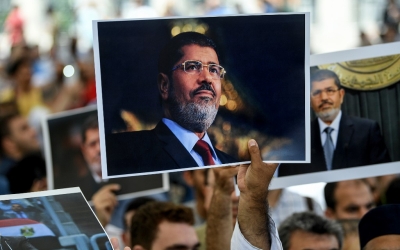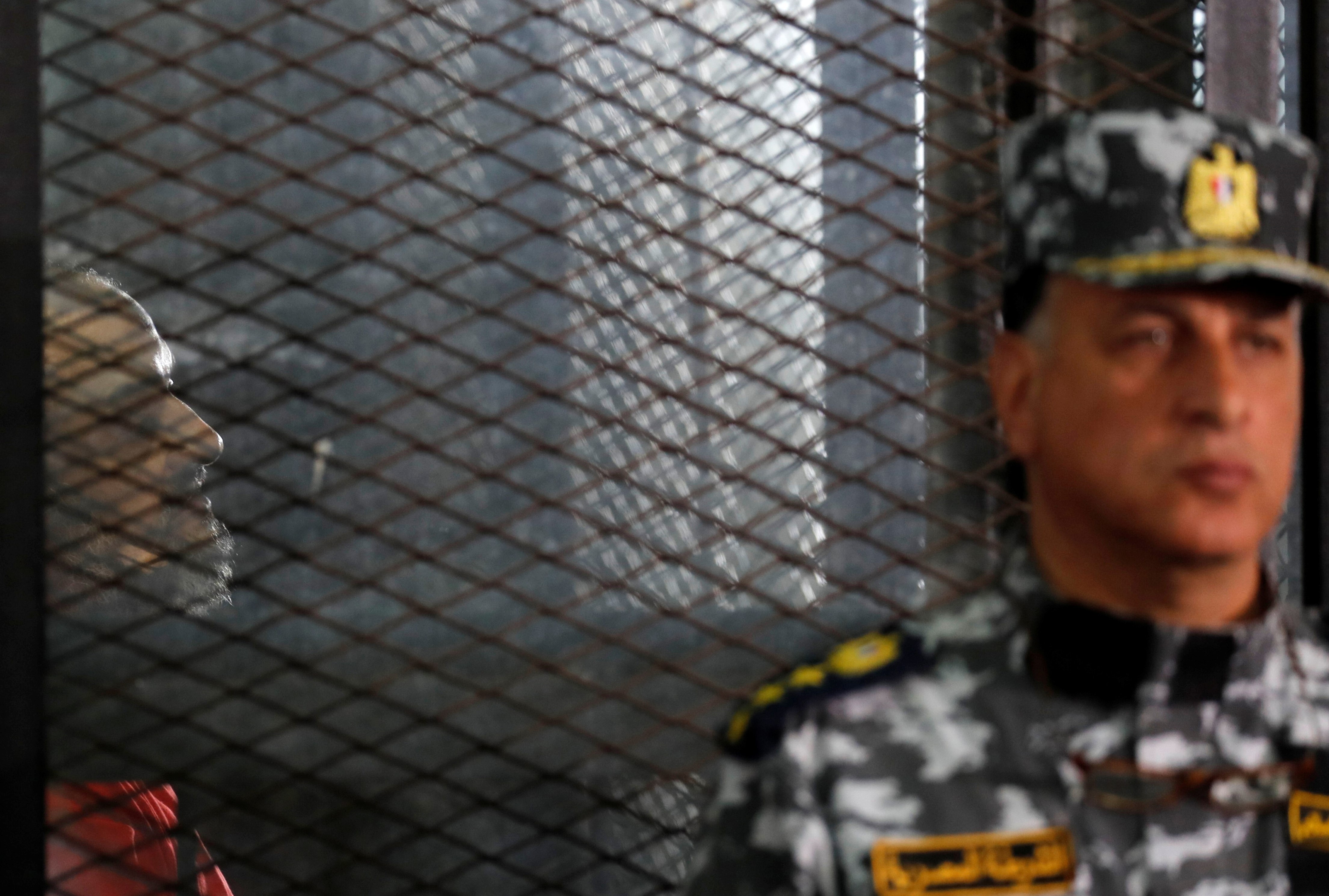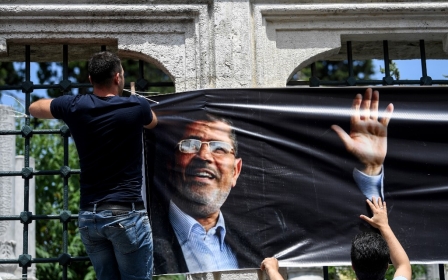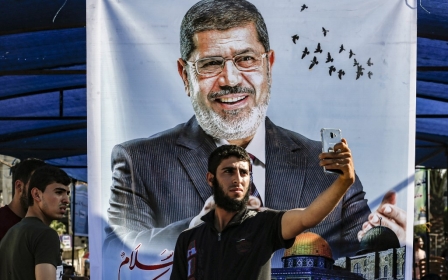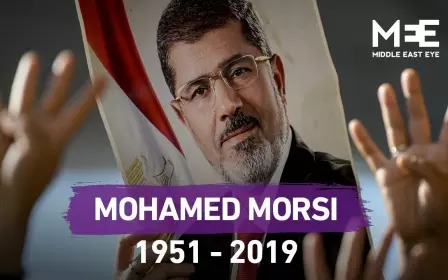How the death of a president shed light on Egypt's brutal dictatorship
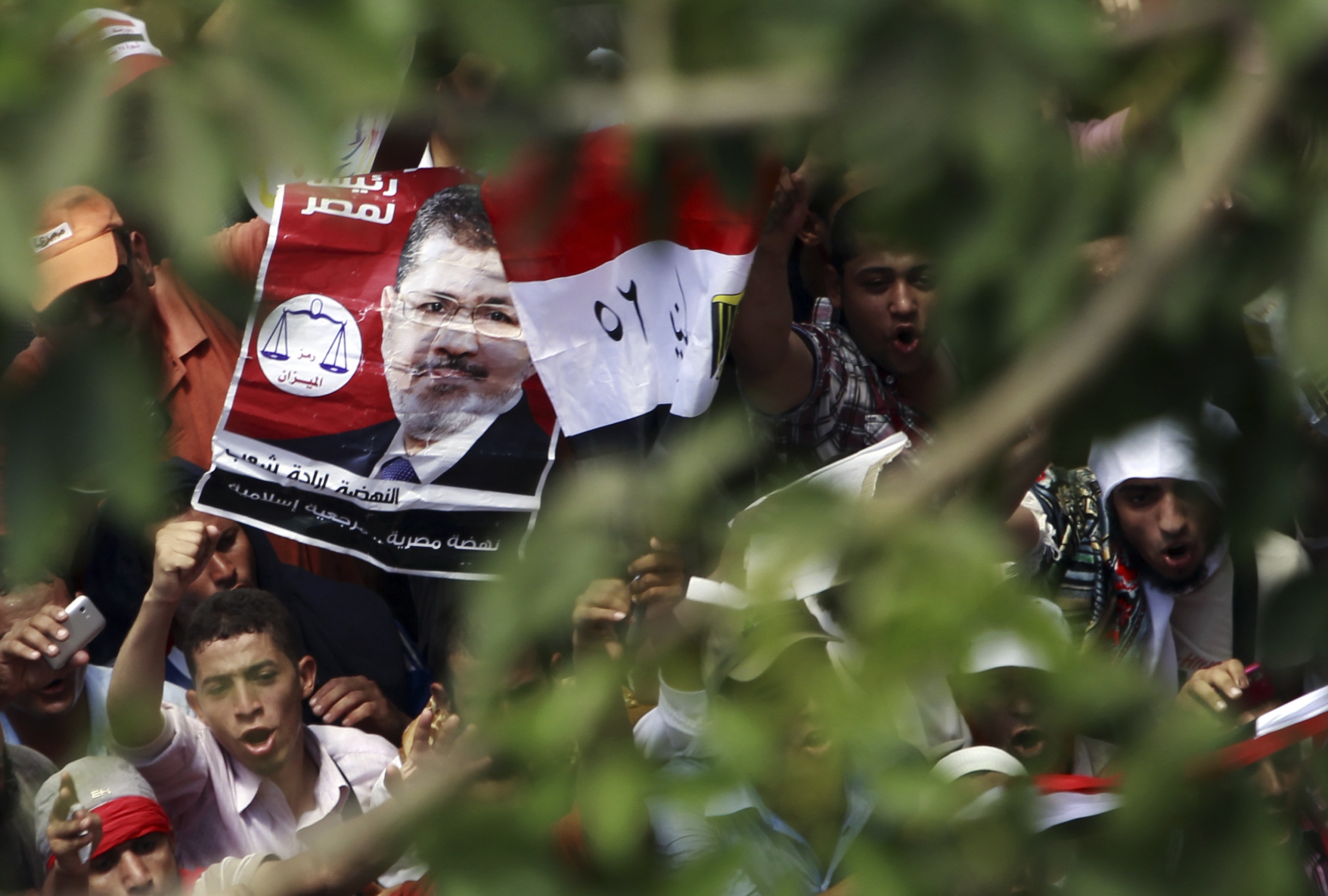
On 17 June of this year the first democratically elected president of Egypt, Mohamed Morsi, collapsed during a court hearing in Cairo and was later pronounced dead, following an apparent heart attack.
Morsi had suffered six years of detention in solitary confinement following a military coup staged by the man who replaced him, Abdel Fattah el-Sisi. During that time he was denied treatment for diabetes and high blood pressure. He was forced to sleep on the concrete floor of his cell, denied access to his family and to any outside sources of news and information.
A state-sanctioned killing
On 8 November, a panel of UN experts led by Agnes Callamard, special rapporteur on extrajudicial, summary or arbitrary executions, concluded that Morsi’s death “after enduring those conditions could amount to a State-sanctioned arbitrary killing”.
Morsi’s case is important because it illustrates and underlines the sheer brutality of the Sisi dictatorship
The report went on to note that because of the denial of medical treatment, Morsi “progressively lost the vision in his left eye, had recurrent diabetic comas and fainted repeatedly”.
New MEE newsletter: Jerusalem Dispatch
Sign up to get the latest insights and analysis on Israel-Palestine, alongside Turkey Unpacked and other MEE newsletters
What gives weight to the assertion that the actions of the Egyptian state killed the president is the following: “The authorities were warned repeatedly that Dr Morsi’s prison conditions would gradually undermine his health to the point of killing him. There is no evidence they acted to address these concerns, even though the consequences were foreseeable.”
On 27 November, the London law firm Guernica 37, acting on behalf of the Morsi family, released a report calling for a UN-led investigation into his death. As the report notes “given the circumstances of Dr Morsi’s death, the abject and overt refusal to provide him with appropriate medical care... there must be an investigation into that which has occurred and that which is occurring in Egypt today.”
The prisons
Morsi’s case is important because it illustrates and underlines the sheer brutality of the Sisi dictatorship. Since he came to power, his regime has built 18 new prisons. Despite that, prisons are hugely overcrowded with cells holding up to 80 individuals at a time.
Sisi has claimed there are no political prisoners, only extremists who threaten society. In reality, there are an estimated 60,000 prisoners of conscience held in appalling conditions. Prisoners are denied sufficient food and have medication and medical treatment withheld.
They are coerced and tortured into giving false confessions. Their families are routinely refused access, as are their lawyers, who themselves face arrest if they annoy the authorities by pursuing the rights of their clients.
The use of solitary confinement is pervasive: a former minister in the Morsi government was held for four years in solitary confinement, while the Al Jazeera journalist Mahmoud Hussein was held in solitary for 600 days.
And the abuse and mistreatment doesn’t stop at the prisons. Thanks to a decree issued in 2014, police stations have been classified as jails, enabling authorities to detain people there for extended periods of time.
Human Rights Watch has noted that “some detainees appear to have died after being tortured or physically abused. But many appear to have died because they were held in severely overcrowded cells or did not receive adequate medical care for serious ailments”.
The Arab Organisation for Human Rights says that 551 have died because of medical negligence. Calls to help the dying are ignored. Those who die may be left in the cells for hours before the bodies are removed.
Military courts
The use of military courts is ubiquitous. Military courts serve the regime well as the burden of proof is much lower. More than 15,000 people, including 150 children, have thus far been tried in military courts. Mass trials that serve to deny the accused any legal right to argue their cases individually are frequent.
Under Sisi, 2500 death sentences have been passed, and in the past 5 years there have been 179 executions
One incident reveals the utter politicisation and weaponisation of the court system: in August 2013, at least 817 people were killed by police and security forces in what has been called the Rabaa massacre.
No one has ever been arrested - let alone investigated - for the actual killings. Instead, hundreds of protesters and opposition party members were arrested. Included in that number were journalists.
They were brought to court in September 2018 in what was but one of numerous mass trials the regime has resorted to. In the Rabaa massacre case, in a grotesquely Stalinist twist, it was the surviving victims who were put on trial not the perpetrators. In a decision involving 612 people, the court handed down 47 life sentences, 490 sentences ranging from five to 15 years and 75 death sentences.
UK’s shameful silence
Thus far under Sisi, 2500 death sentences have been passed, and in the past five years there have been 179 executions. And what has been the response of the British government to the egregious and fundamental trampling of the rights of the Egyptian people?
In September, Prime Minister Boris Johnson met with the Egyptian president. At a bilateral meeting on the sidelines of the UN, Sisi and Johnson, according to a Downing Street readout of the meeting, “reconfirmed their commitment to work together to build on the positive progress in our bilateral relationship”.
Downing Street added: “They discussed our two countries’ economic ties and the importance of building on this after the UK leaves the EU”. For their part, the Egyptians said that Johnson had been “keen to praise Egypt’s economic performance”.
No mention of the death of the president, of the mass trials, the death penalties handed out, the tens of thousands of prisoners of conscience, the silencing of critical voices, the awful prison conditions.
Boris Johnson was shamefully silent about all of that. The rest of us must not be.
The views expressed in this article belong to the author and do not necessarily reflect the editorial policy of Middle East Eye.
Middle East Eye delivers independent and unrivalled coverage and analysis of the Middle East, North Africa and beyond. To learn more about republishing this content and the associated fees, please fill out this form. More about MEE can be found here.



